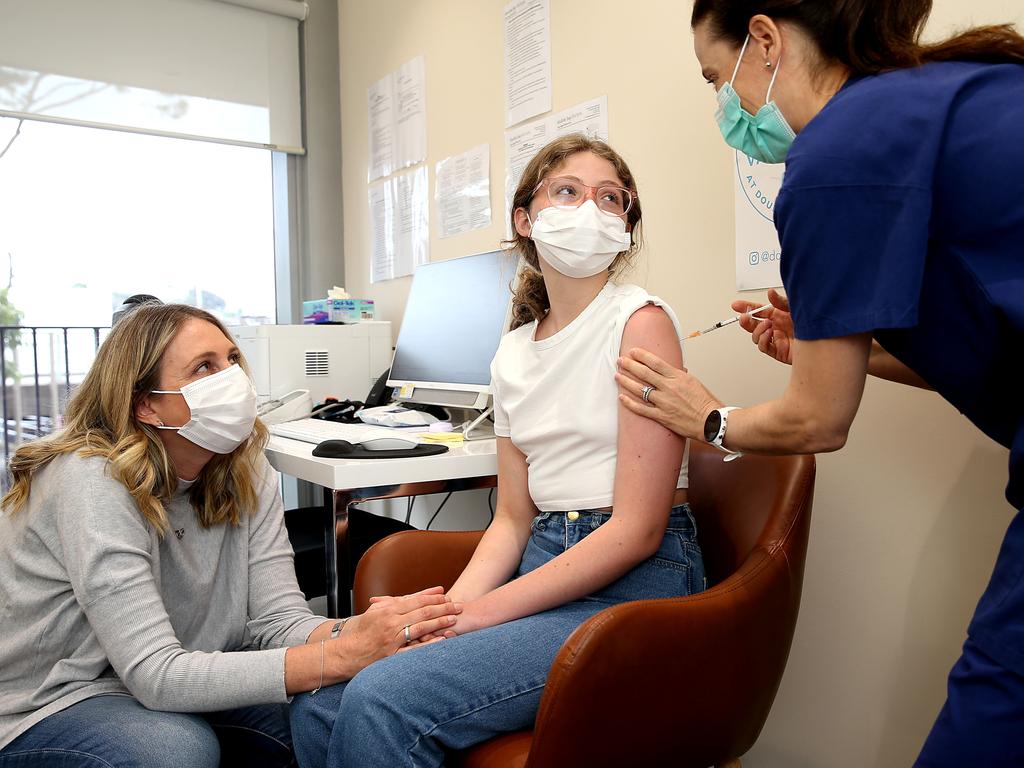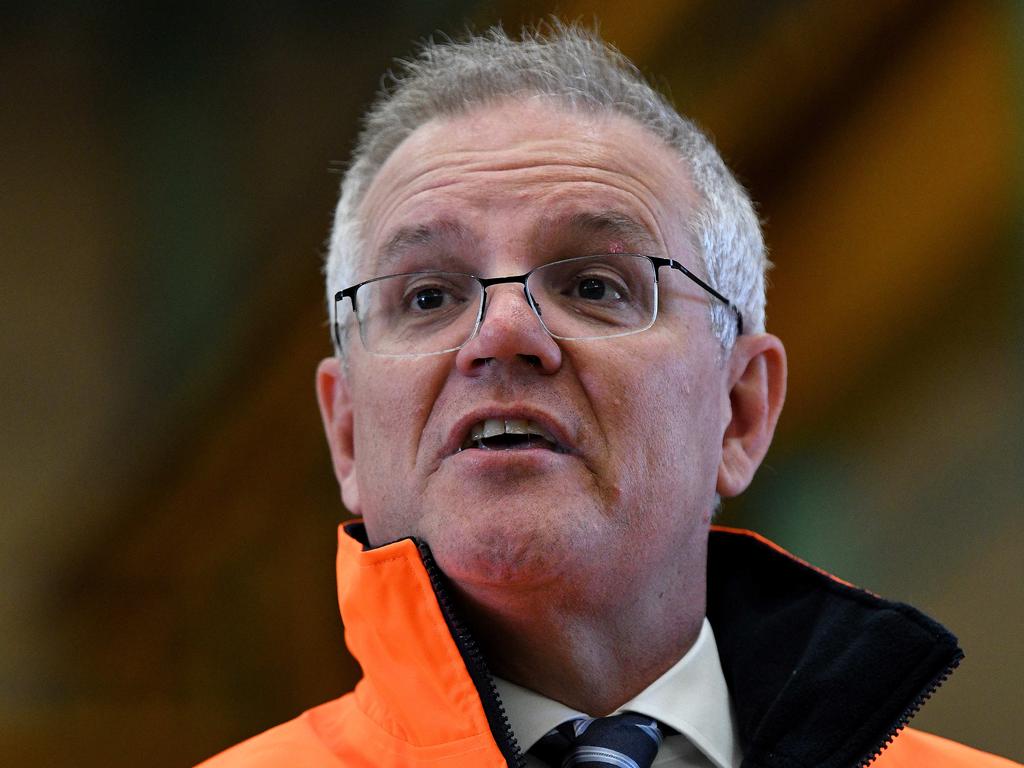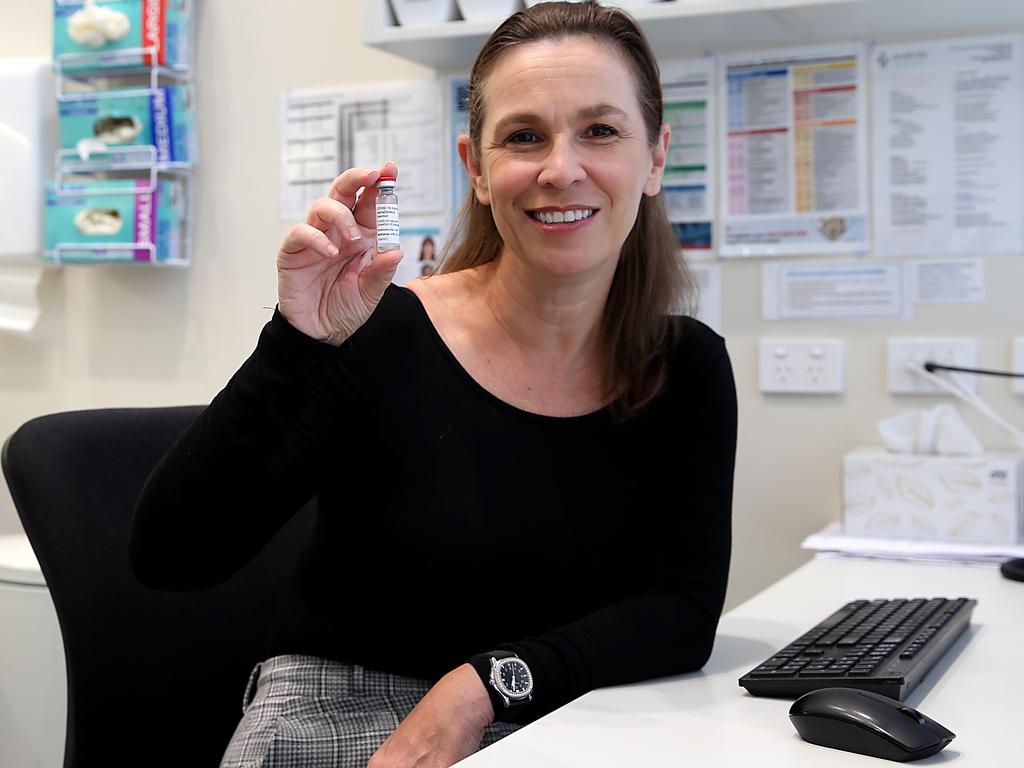Children aged between 5 and 11 to begin getting Pfizer vaccine on January 10
More than 2 million young children will be able to get their Covid-19 jabs in Australia within weeks.
Australian children aged five to 11 will start getting their Covid-19 jab before school begins next year, with the nation’s immunisation authority giving the final approval.
In a major step forward for the nation’s vaccination rollout, experts from the Australian Technical Advisory Group on Immunisation will recommend that Pfizer be made available to the young age group on Friday.
The government will accept the advice and kids will start getting jabbed in a month from January 10, with parents able to book appointments before the end of December.
The vaccine for this age group is one-third of the dosage given to people aged 12 years and over.
ATAGI has recommended an eight-week interval between the two doses, which can be shortened to three weeks if there is an outbreak.

Healthcare providers will now be trained to give young kids the jab safely and Australia’s medicines regulator will start undertaking batch testing before children begin getting inoculated ahead of the 2022 school year.
“In one month from today, around 2.27 million Aussie kids aged five to 11 years will have the opportunity to roll up their sleeve and get vaccinated against Covid-19,” Prime Minister Scott Morrison said.
“This will bring great relief to so many mums and dads who now have a choice on what’s best for their kids.

“They can have peace of mind knowing this has the tick from the best medical regulators in the world.
“Australia is a proud vaccination nation, especially when it comes to protecting our kids, with more than 95 per cent of all five-year-olds currently fully vaccinated against other diseases.
“Vaccinating our kids is the next step in our National Plan, which has continually provided us with a safe, step by step pathway to keeping Australians safe throughout the pandemic.”
Vaccines for kids will be made available through GPs, community pharmacies, Aboriginal Health Services, and state and territory clinics.
Individual clinics will decide if they will provide vaccines for young children while states and territories will be responsible for any school-based programs.

The Therapeutic Goods Administration and ATAGI are also assessing the Moderna vaccine for children aged six to 11, with advice expected over the coming weeks.
ATAGI reviewed clinical data from Canada, where Pfizer is already approved for children, when making its recommendations for the 5 to 11 age group.
Health Minister Greg Hunt said vaccinating children could also help reduce community transmission.
“(This can) help prevent children passing the virus on to younger siblings, grandparents and the wider community,” he said.
“We encourage all parents to vaccinate their children against Covid-19.”
Although most children with Covid have mild or no symptoms, some will experience severe disease which leaves them sick for months.
Missing school and being around friends has also affected their mental health.
About 5 million children aged 5-11 have received at least one dose of Pfizer in the US, including 1.4 million who have been double dosed.




